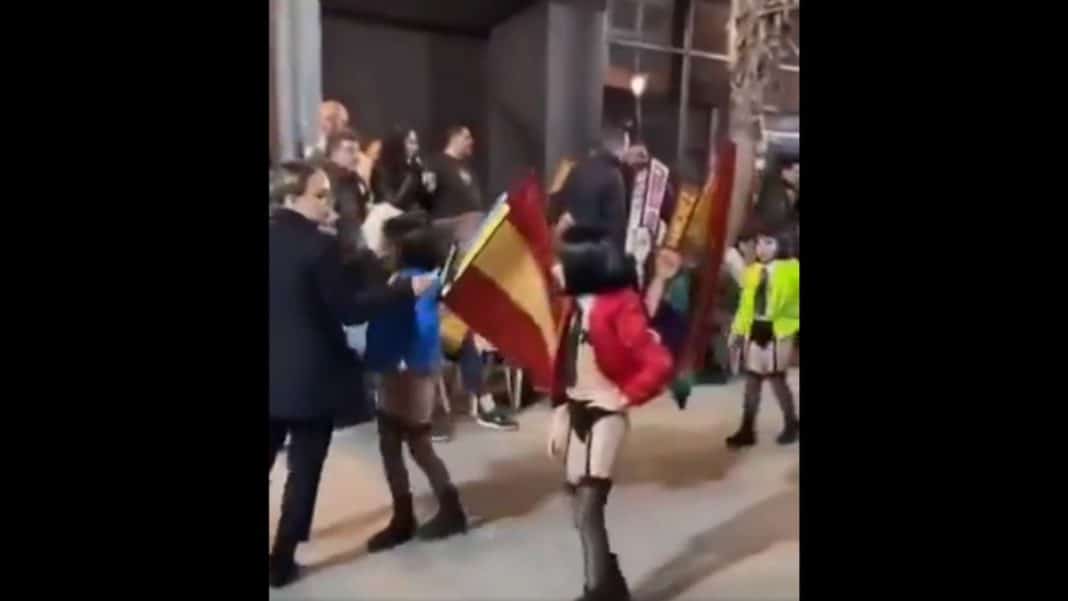The Justice Department has closed the case alleging crimes against minors at the Torrevieja Carnival, in which their costumes simulated lingerie clothing, dismissed by the Judge who has decreed the closure of the case upon understanding “that the perpetration of the crimes” denounced by Christian Lawyers could not be duly justified.
However, that is not the end of the matter as the organisation considers that the arguments put forward in the order are “generic”, which is why they have filed an appeal before the Provincial Court of Alicante. The foundation defends that the fact that the judge himself recognises in his writing that “the minors are wearing clothing that is not appropriate for their age,” is sufficient reason to open an investigation and, thus, clarify what happened in order to protect the minors involved.
This year’s Torrevieja carnival parade brought with it a barrage of criticism, and hate-fuelled verbal and written attacks, that ended with the case before the courts. The parade of the Osadía troupe, known for its controversial events, was harshly criticised by several groups for the appearance of several girls dressed in garters and lingerie. Given these events, the Spanish Foundation of Christian Lawyers filed a complaint with the Investigating Court against those responsible for the event for the alleged use of minors for exhibitionist shows.
Now, the Investigative Court Number 1 of Torrevieja files the case after the request of the Provincial Prosecutor’s Office of Alicante for the provisional dismissal of the case. The judge’s order includes what has already been defended by the Public Ministry and maintains that the facts must be understood within the festive context of a carnival, an event whose “common characteristic is that of being a period of permissiveness and a certain lack of control in which people dress up, parades and street parties take place.”
The judge points out that “in no way” the parade affected the sexual freedom or harm of minors, since there is no evidence that any of them were forced to participate in the activity and they had the permission of the guardians of the minor participants. In this sense, the Prosecutor’s Office goes one step further and recognises in its writing that in the images the minors can be seen parading, “smiling, without making any type of gesture or movement of an obscene nature.”
Christian Lawyers states in their appeal that the statement that the minors “are wearing clothing that is not appropriate for their age” contravenes what was later stated by the investigating court. The organisation of jurists defends that “the protection of children cannot retreat in the face of the permissiveness and certain lack of control that is imposed at carnival.”
They denounce that it cannot be concluded that the facts are not consecutive to a crime, when “none of the relevant tests have been carried out.” For this reason, the foundation requests, as already stated in the complaint, that the person in charge of the Osadía troupe, the mayor of Torrevieja and the festival councillor be summoned to testify. Likewise, they request that the background of those responsible be verified, as well as the procedures that arise and are appropriate to clarify the facts.
The appeal presented by Christian Lawyers refers to the sentence included in the judge’s order in which the Supreme Court ruled that “with respect to minors, the defence of sexual indemnity involves a broader protection campaign than a right to freedom” that still cannot be exercised in an informed and autonomous manner. Consequently, the organisation of jurists understands that the clothing, in addition to being “absolutely inappropriate”, had a marked sexual nature.
The complainants allude in their writing that this is not the first time that the theme chosen by this troupe, known for its controversial costumes, has generated criticism. Just the year before, those responsible came to the fore for dressing the girls as nuns, something that was not well received by several groups. Therefore, they understand that “with the inaction of the courts it is likely that they will be repeated.”





